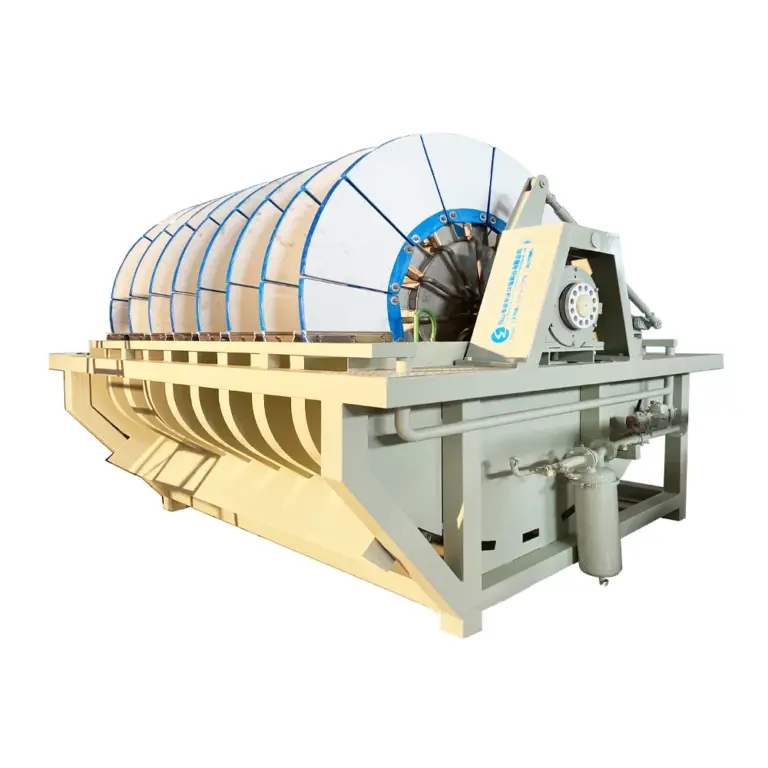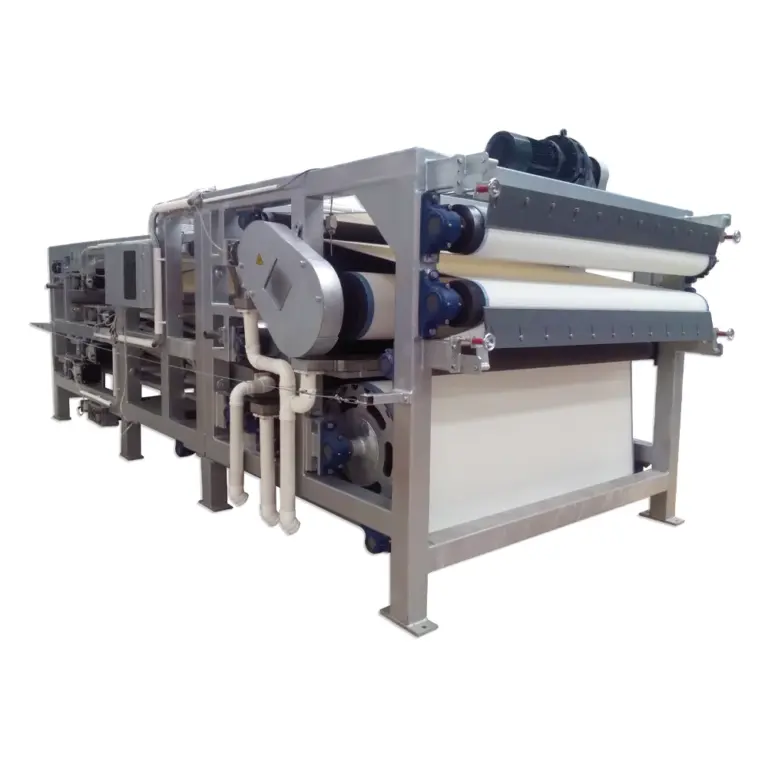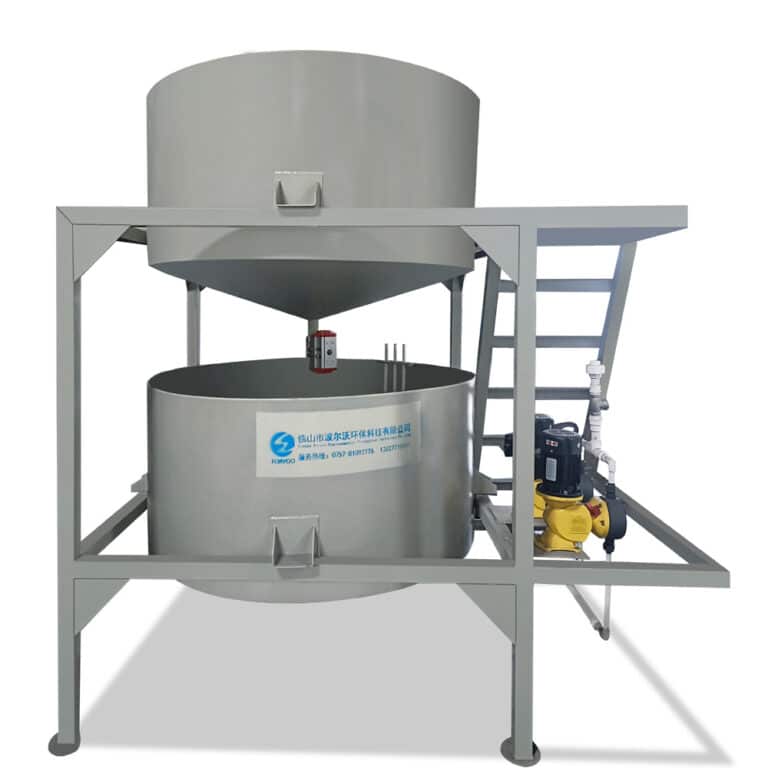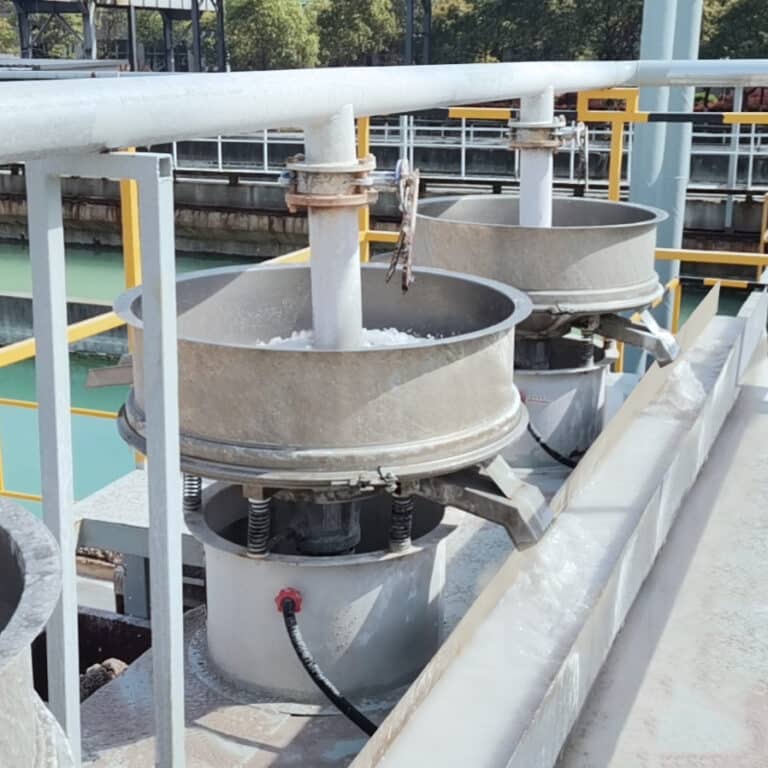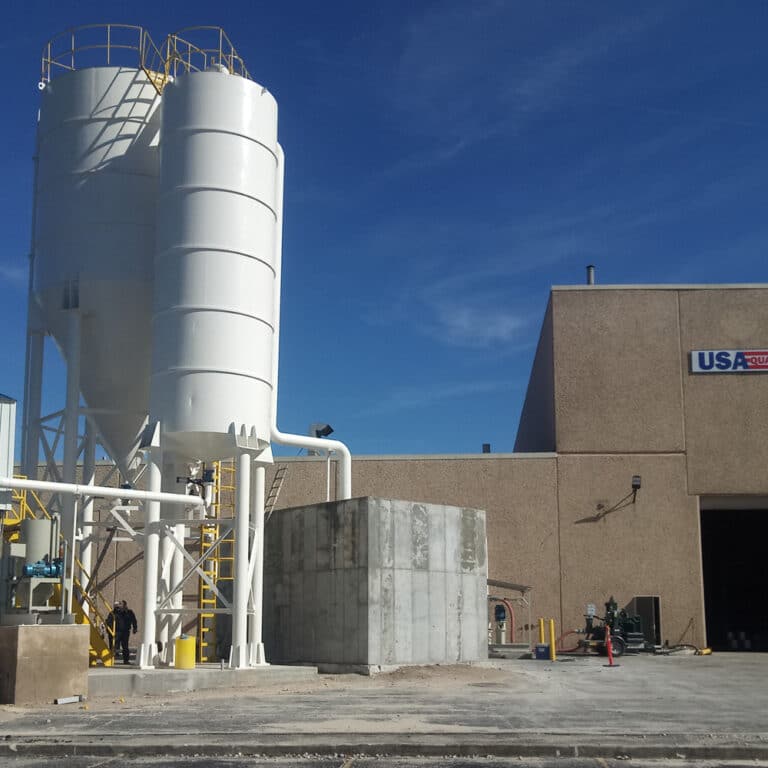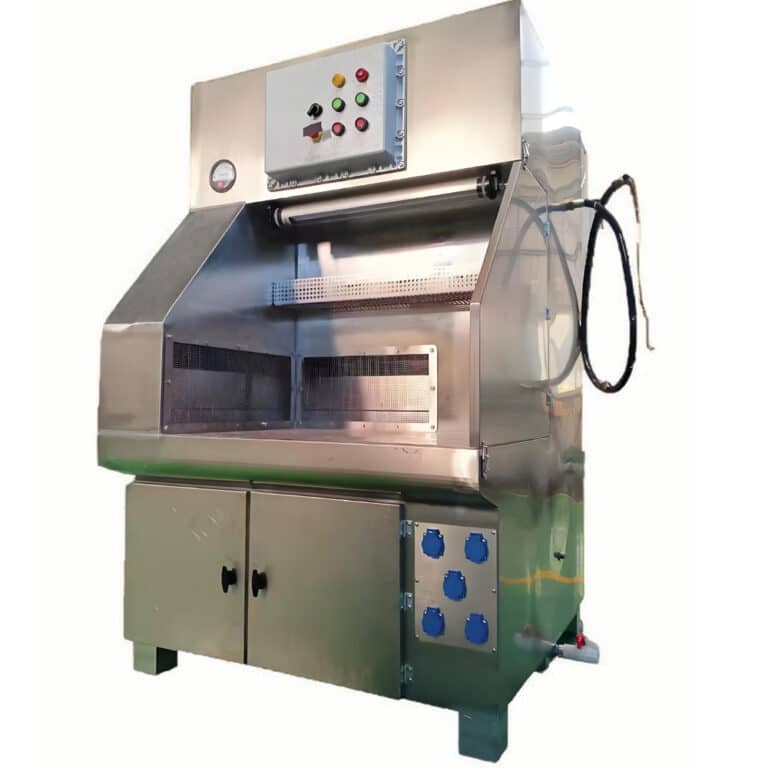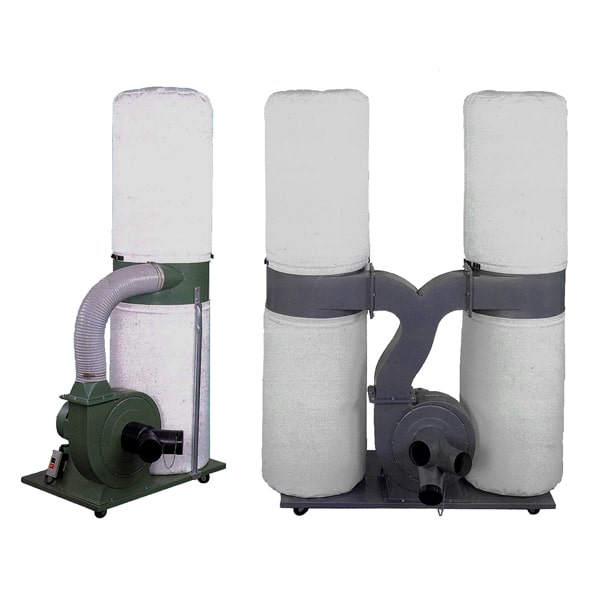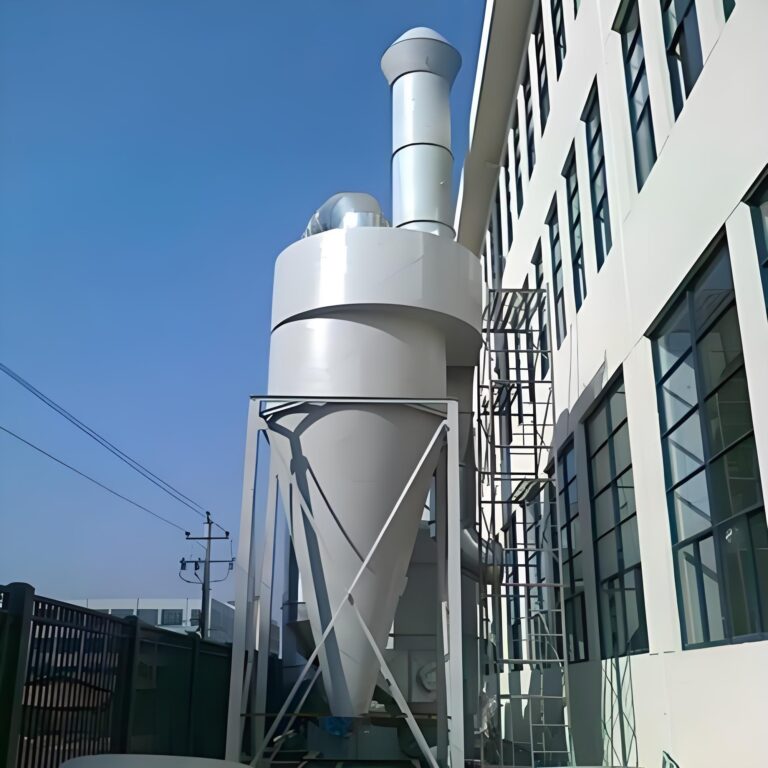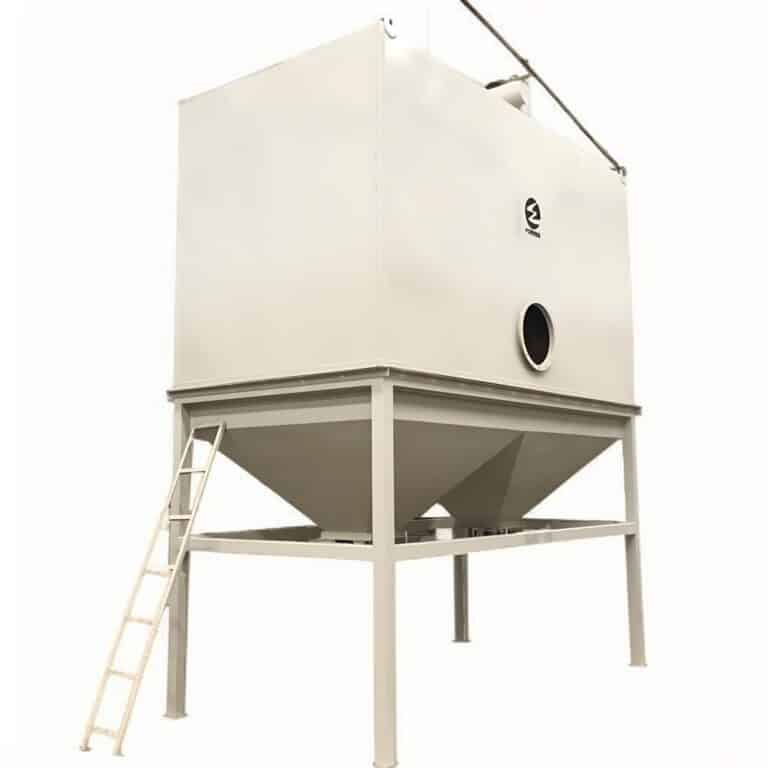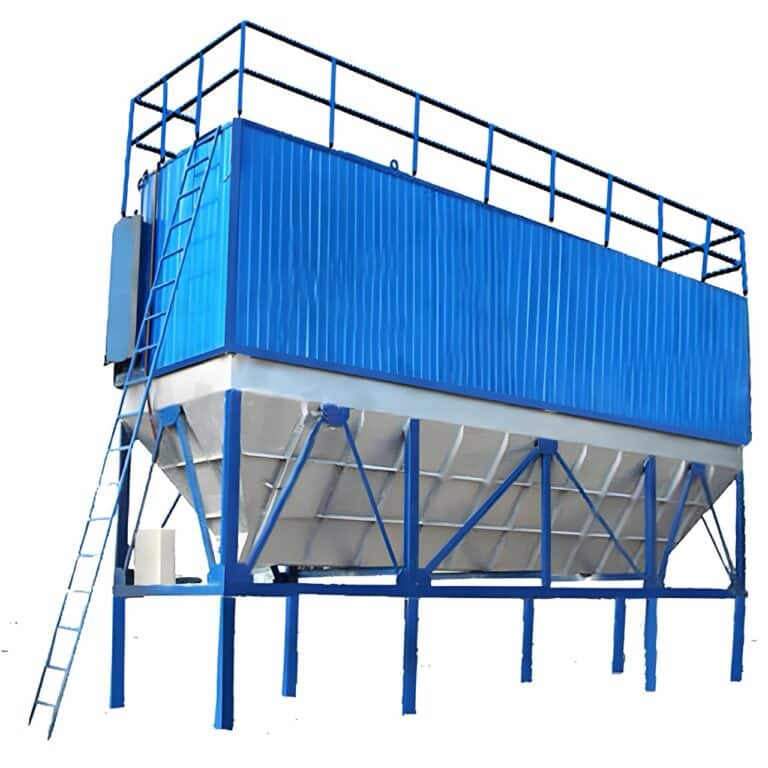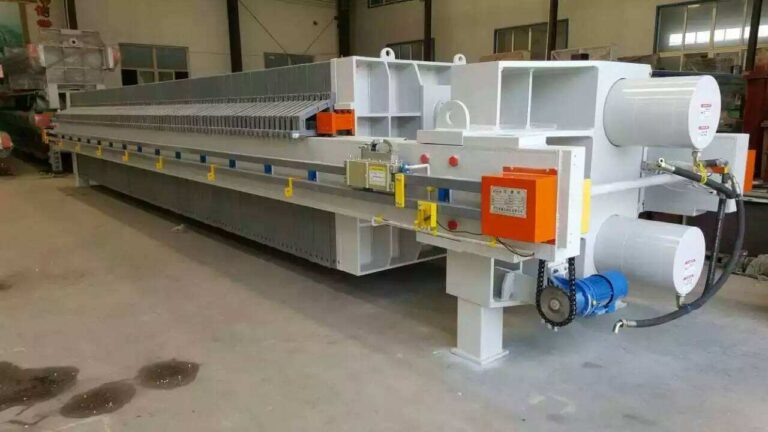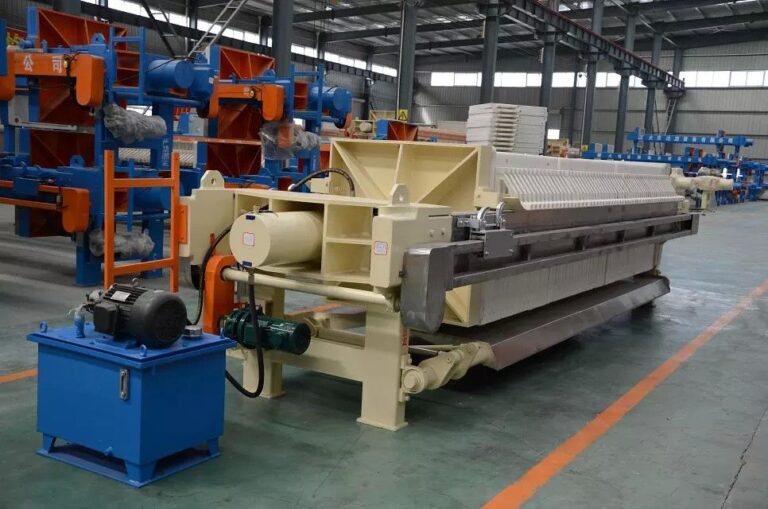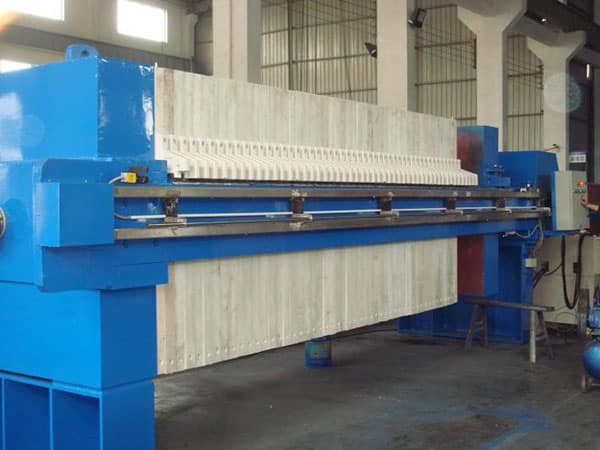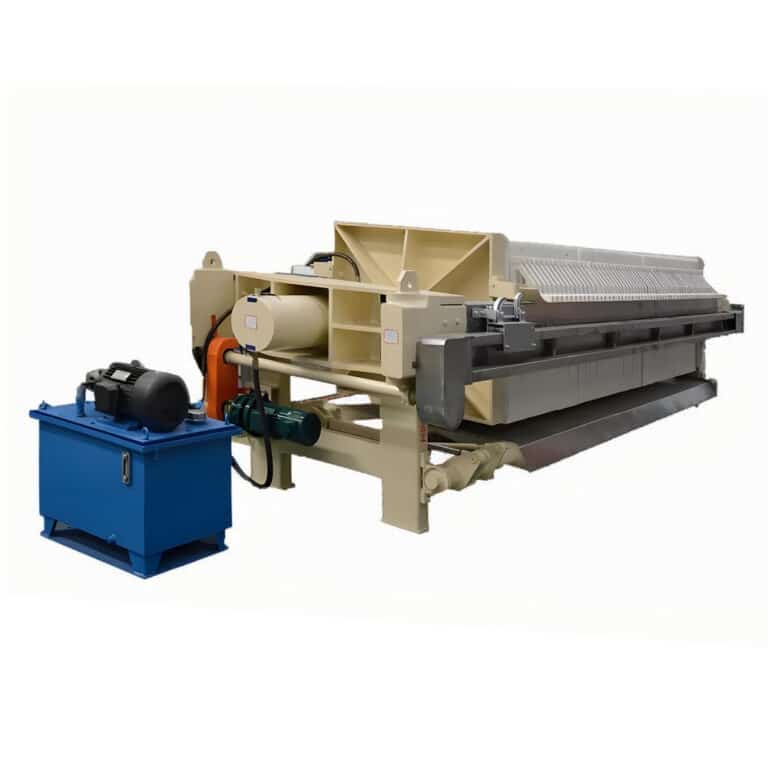In the realm of industrial filtration, a revolutionary fusion of artificial intelligence and membrane technology is reshaping the landscape of solid-liquid separation. AI-powered membrane filter presses are at the forefront of this transformation, offering unprecedented levels of efficiency, precision, and adaptability. These smart filtration systems are not just improving existing processes; they're redefining what's possible in industries ranging from wastewater treatment to food and beverage production.
The integration of AI into membrane filter presses marks a significant leap forward in filtration technology. By harnessing the power of machine learning algorithms, these systems can optimize filtration cycles, predict maintenance needs, and enhance overall performance. This intelligent approach to filtration is addressing long-standing challenges in the industry, such as membrane fouling, inconsistent cake moisture content, and inefficient resource utilization.
As we delve deeper into the world of AI-powered membrane filter presses, we'll explore how this technology is revolutionizing industrial processes, reducing operational costs, and contributing to more sustainable practices. From the fundamentals of membrane filtration to the cutting-edge applications of artificial intelligence in this field, this article aims to provide a comprehensive understanding of this transformative technology.
"AI-powered membrane filter presses represent a paradigm shift in solid-liquid separation, offering up to 30% improvement in filtration efficiency and reducing operational costs by as much as 25%."
How Does AI Enhance Membrane Filter Press Operations?
At the heart of AI-powered membrane filter presses lies a sophisticated interplay between traditional filtration mechanics and advanced algorithms. But how exactly does this integration work to improve operations?
The incorporation of AI into membrane filter presses begins with the collection and analysis of vast amounts of operational data. Sensors throughout the system continuously monitor parameters such as pressure, flow rate, cake thickness, and filtrate quality. This real-time data is then fed into machine learning models that can identify patterns, predict outcomes, and make instantaneous adjustments to optimize performance.
One of the key advantages of AI in this context is its ability to learn and adapt. As the system encounters various filtration scenarios, it continuously refines its algorithms, becoming more efficient and effective over time. This adaptive capability allows the membrane filter press to handle a wide range of slurries and operating conditions with unprecedented precision.
"AI-driven membrane filter presses can reduce filtration cycle times by up to 20% while improving cake moisture consistency by 15%, leading to significant improvements in both productivity and product quality."
| AI Enhancement | Benefit |
|---|---|
| Real-time optimization | Up to 20% reduction in cycle time |
| Predictive maintenance | 30% decrease in downtime |
| Adaptive pressure control | 15% improvement in cake moisture consistency |
The integration of AI into membrane filter presses represents a significant leap forward in filtration technology. By continuously optimizing operations, predicting maintenance needs, and adapting to changing conditions, these smart systems are setting new standards for efficiency and reliability in industrial filtration processes.
What Role Does Machine Learning Play in Predicting Membrane Fouling?
Membrane fouling has long been a thorn in the side of filtration processes, leading to decreased efficiency, increased energy consumption, and more frequent maintenance. But how can machine learning address this persistent challenge?
Machine learning algorithms, when applied to membrane filter presses, can analyze historical and real-time data to predict the onset of fouling before it becomes a significant issue. These algorithms consider a multitude of factors, including the composition of the slurry, operating conditions, and historical performance data, to create accurate fouling prediction models.
By anticipating fouling events, the system can proactively adjust operating parameters or trigger cleaning cycles to maintain optimal performance. This predictive approach not only extends the life of the membrane but also ensures consistent filtration quality and reduces downtime.
"Implementation of machine learning-based fouling prediction in membrane filter presses has shown to reduce membrane replacement frequency by up to 40% and increase overall system uptime by 25%."
| Fouling Prediction Metric | Improvement |
|---|---|
| Membrane lifespan | 40% increase |
| System uptime | 25% increase |
| Energy efficiency | 15% improvement |
The ability of machine learning to predict and mitigate membrane fouling is transforming the operational landscape of PORVOO membrane filter presses. By addressing one of the most significant challenges in filtration technology, these AI-powered systems are setting new benchmarks for efficiency and reliability in industrial applications.
How Does AI Optimize Filtration Cycles for Different Slurries?
The diversity of slurries encountered in industrial filtration poses a significant challenge for traditional filter press operations. How does AI rise to meet this challenge and optimize filtration cycles across various applications?
AI-powered membrane filter presses excel in their ability to adapt to different slurry characteristics in real-time. By analyzing properties such as particle size distribution, solids concentration, and viscosity, the AI system can dynamically adjust filtration parameters to achieve optimal results for each specific slurry type.
This adaptive capability extends beyond simple parameter adjustments. Advanced AI algorithms can predict the optimal filtration cycle based on the incoming slurry characteristics, setting the stage for a highly efficient operation from the outset. As the filtration progresses, the system continuously fine-tunes its approach, learning from each cycle to improve future performance.
"AI-optimized filtration cycles have demonstrated the ability to increase throughput by up to 35% while simultaneously improving filtrate quality by 20%, across a wide range of slurry types."
| Slurry Type | Throughput Increase | Quality Improvement |
|---|---|---|
| High-solids | 35% | 15% |
| Low-viscosity | 30% | 20% |
| Complex mixtures | 25% | 25% |
The ability of AI to optimize filtration cycles for different slurries is revolutionizing the versatility and efficiency of membrane filter presses. This adaptive approach not only improves performance across various applications but also opens up new possibilities for industries previously limited by traditional filtration technologies.
What Impact Does AI Have on Energy Efficiency in Membrane Filtration?
Energy consumption is a critical consideration in industrial filtration processes. But how exactly does the integration of AI into membrane filter presses address this concern and improve overall energy efficiency?
AI-powered membrane filter presses leverage sophisticated algorithms to optimize energy usage throughout the filtration process. By analyzing real-time data on pressure differentials, flow rates, and filtration resistance, the system can adjust operating parameters to minimize energy consumption without compromising filtration quality.
One key area where AI significantly impacts energy efficiency is in pump operation. Traditional systems often operate pumps at constant speeds, regardless of the actual filtration requirements. In contrast, AI-driven systems can implement dynamic pump control, adjusting speeds and pressures in real-time to match the specific needs of each filtration stage.
"Implementation of AI-driven energy optimization in membrane filter presses has resulted in average energy savings of 30%, with some applications seeing reductions of up to 45% in overall energy consumption."
| Energy Efficiency Metric | Improvement |
|---|---|
| Overall energy consumption | 30-45% reduction |
| Pump efficiency | 40% increase |
| Carbon footprint | 35% decrease |
The impact of AI on energy efficiency in membrane filtration extends beyond immediate operational benefits. By significantly reducing energy consumption, these smart systems contribute to more sustainable industrial practices, aligning with global efforts to minimize environmental impact and reduce carbon footprints.
How Does AI Contribute to Predictive Maintenance in Membrane Filter Presses?
Maintenance is a critical aspect of ensuring the longevity and efficiency of membrane filter presses. But how does AI transform traditional maintenance approaches into a more proactive and efficient system?
AI-powered predictive maintenance in membrane filter presses represents a paradigm shift from reactive to proactive care. By continuously analyzing operational data, including pressure fluctuations, flow rates, and filtrate quality, AI algorithms can detect subtle changes that may indicate impending issues long before they manifest as operational problems.
This predictive capability allows maintenance teams to schedule interventions at optimal times, minimizing downtime and preventing unexpected failures. Moreover, AI can provide detailed insights into the nature of potential issues, enabling more targeted and efficient maintenance activities.
"Implementation of AI-driven predictive maintenance in membrane filter presses has been shown to reduce unplanned downtime by up to 50% and extend overall equipment lifespan by 25%."
| Maintenance Metric | Improvement |
|---|---|
| Unplanned downtime | 50% reduction |
| Equipment lifespan | 25% increase |
| Maintenance costs | 35% decrease |
The contribution of AI to predictive maintenance in membrane filter presses goes beyond mere scheduling improvements. By providing deep insights into equipment health and performance trends, these systems enable a more holistic approach to asset management, optimizing not just maintenance activities but overall operational strategies.
What Advancements in Filter Media Are Enabled by AI Integration?
The evolution of filter media plays a crucial role in the performance of membrane filter presses. But how does the integration of AI push the boundaries of what's possible in filter media design and application?
AI integration in membrane filter presses opens up new avenues for filter media advancement. By analyzing vast amounts of performance data across different media types and operational conditions, AI can identify optimal media characteristics for specific applications. This data-driven approach enables the development of highly specialized filter media tailored to unique filtration challenges.
Furthermore, AI can dynamically adjust the utilization of different filter media layers in multi-layer configurations, optimizing the filtration process in real-time based on the changing characteristics of the slurry being processed.
"AI-driven filter media optimization has led to the development of 'smart' filter cloths that can improve filtration efficiency by up to 40% and extend media lifespan by 50% compared to traditional options."
| Filter Media Advancement | Benefit |
|---|---|
| Filtration efficiency | 40% improvement |
| Media lifespan | 50% increase |
| Customization capability | 75% higher |
The advancements in filter media enabled by AI integration are pushing the boundaries of what's achievable in solid-liquid separation. These smart filter media solutions, combined with AI-driven operational optimization, are setting new standards for efficiency and performance in the Membrane filter press AI integration industry.
How Does AI Improve Quality Control in Membrane Filtration Processes?
Quality control is paramount in industries relying on membrane filtration. But how does the integration of AI elevate quality assurance to new heights?
AI-powered membrane filter presses bring unprecedented precision to quality control in filtration processes. By continuously monitoring and analyzing filtrate characteristics, cake moisture content, and other critical parameters, AI systems can detect even minor deviations from desired quality standards in real-time.
This constant vigilance allows for immediate adjustments to the filtration process, ensuring consistent product quality. Moreover, AI can predict potential quality issues based on subtle trends in operational data, enabling proactive interventions before quality standards are compromised.
"Implementation of AI-driven quality control in membrane filter presses has been shown to reduce quality-related rejects by up to 60% and improve overall product consistency by 35%."
| Quality Control Metric | Improvement |
|---|---|
| Quality-related rejects | 60% reduction |
| Product consistency | 35% improvement |
| Compliance rate | 95% achievement |
The improvement in quality control brought about by AI in membrane filtration processes extends beyond immediate operational benefits. By ensuring consistently high product quality, these systems enhance brand reputation, reduce waste, and open up new opportunities in markets with stringent quality requirements.
What Future Developments Can We Expect in AI-Powered Membrane Filtration?
As we stand on the cusp of a new era in filtration technology, it's natural to wonder about the future trajectory of AI-powered membrane filter presses. What innovations and advancements lie on the horizon?
The future of AI in membrane filtration is brimming with potential. We can anticipate even more sophisticated machine learning algorithms that can handle increasingly complex filtration scenarios with greater precision. These advanced systems may incorporate deep learning techniques to identify subtle patterns in filtration data that are beyond current capabilities.
Another exciting prospect is the development of autonomous filtration systems that can not only optimize their own operations but also collaborate with other processes in the production line. This could lead to fully integrated, AI-driven manufacturing ecosystems where filtration is seamlessly coordinated with upstream and downstream processes.
"Industry experts predict that the next generation of AI-powered membrane filter presses could achieve up to 50% improvement in overall efficiency and reduce operational costs by as much as 40% compared to current systems."
| Future Development | Potential Impact |
|---|---|
| Advanced AI algorithms | 50% efficiency improvement |
| Autonomous systems | 40% cost reduction |
| Integrated ecosystems | 30% increase in overall productivity |
The future developments in AI-powered membrane filtration promise to push the boundaries of what's possible in solid-liquid separation. As these technologies continue to evolve, we can expect to see transformative impacts across a wide range of industries, from water treatment to pharmaceutical production and beyond.
In conclusion, the integration of AI into membrane filter presses represents a quantum leap in filtration technology. From optimizing filtration cycles and predicting maintenance needs to enhancing energy efficiency and quality control, AI is revolutionizing every aspect of the filtration process. As we've explored, these smart systems are not just improving existing processes; they're opening up new possibilities and setting new standards for efficiency, reliability, and sustainability in industrial filtration.
The advancements we've discussed – from machine learning-driven fouling prediction to AI-optimized filter media – are already transforming industries that rely on solid-liquid separation. The ability to adapt in real-time to different slurries, predict and prevent issues before they occur, and consistently produce high-quality outputs is redefining what's possible in filtration technology.
As we look to the future, the potential for further innovation in AI-powered membrane filtration is immense. The prospect of fully autonomous, self-optimizing filtration systems integrated into broader AI-driven manufacturing ecosystems points to a future where filtration processes are not just more efficient, but fundamentally smarter and more responsive to the complex demands of modern industry.
For businesses and industries looking to stay at the forefront of filtration technology, embracing AI-powered membrane filter presses is not just an option – it's becoming a necessity. These systems offer a pathway to improved efficiency, reduced costs, and enhanced sustainability, aligning with the broader trends towards smart manufacturing and Industry 4.0.
As we continue to push the boundaries of what's possible in filtration technology, one thing is clear: AI-powered membrane filter presses are not just the future of filtration – they are rapidly becoming its present, setting new benchmarks for performance and efficiency in industrial processes worldwide.
External Resources
Membrane Filter Press – PORVOO Clean-Tech – This resource details the operation and advantages of membrane filter presses, including the integration of artificial intelligence and machine learning algorithms to optimize filtration cycles, predict maintenance needs, and enhance overall efficiency.
Artificial Intelligence Application in Membrane Processes and Filtration – This paper discusses the application of AI techniques in membrane processes, focusing on optimizing input parameters, predicting membrane fouling, and improving the overall performance and scalability of membrane filtration systems.
Using Machine Learning for Water Filtering Membranes Maintenance – This article explains how Veolia Water Technologies uses machine learning to optimize the maintenance timing of water filtering membranes, enhancing their efficiency and lifespan.
Machine Learning in Membrane Design: From Property Prediction to Optimization – This mini review summarizes research on the application of machine learning in membrane design, including membrane screening and optimization using Bayesian optimization and tree-based ML models to predict membrane properties.
AI-Driven Control Systems in Membrane Filter Presses – While not a separate link, this section within the PORVOO Clean-Tech article highlights the benefits of AI-driven control systems in membrane filter presses, such as reduced cycle times and improved cake moisture content.
Optimization of Membrane Filtration Processes Using AI Algorithms – This part of the paper delves into the use of AI algorithms, such as artificial neural networks and genetic algorithms, to optimize membrane filtration processes by predicting permeate flux and controlling membrane fouling.
Advanced Filter Media and AI in Membrane Filter Presses – This section discusses the integration of advanced filter media and AI technologies in membrane filter presses to enhance filtration performance, reduce maintenance, and improve overall efficiency.
Predictive Maintenance and Optimization in Membrane Processes – This article touches on the use of machine learning for predictive maintenance and optimization in membrane processes, ensuring better performance and longer membrane lifespan.
